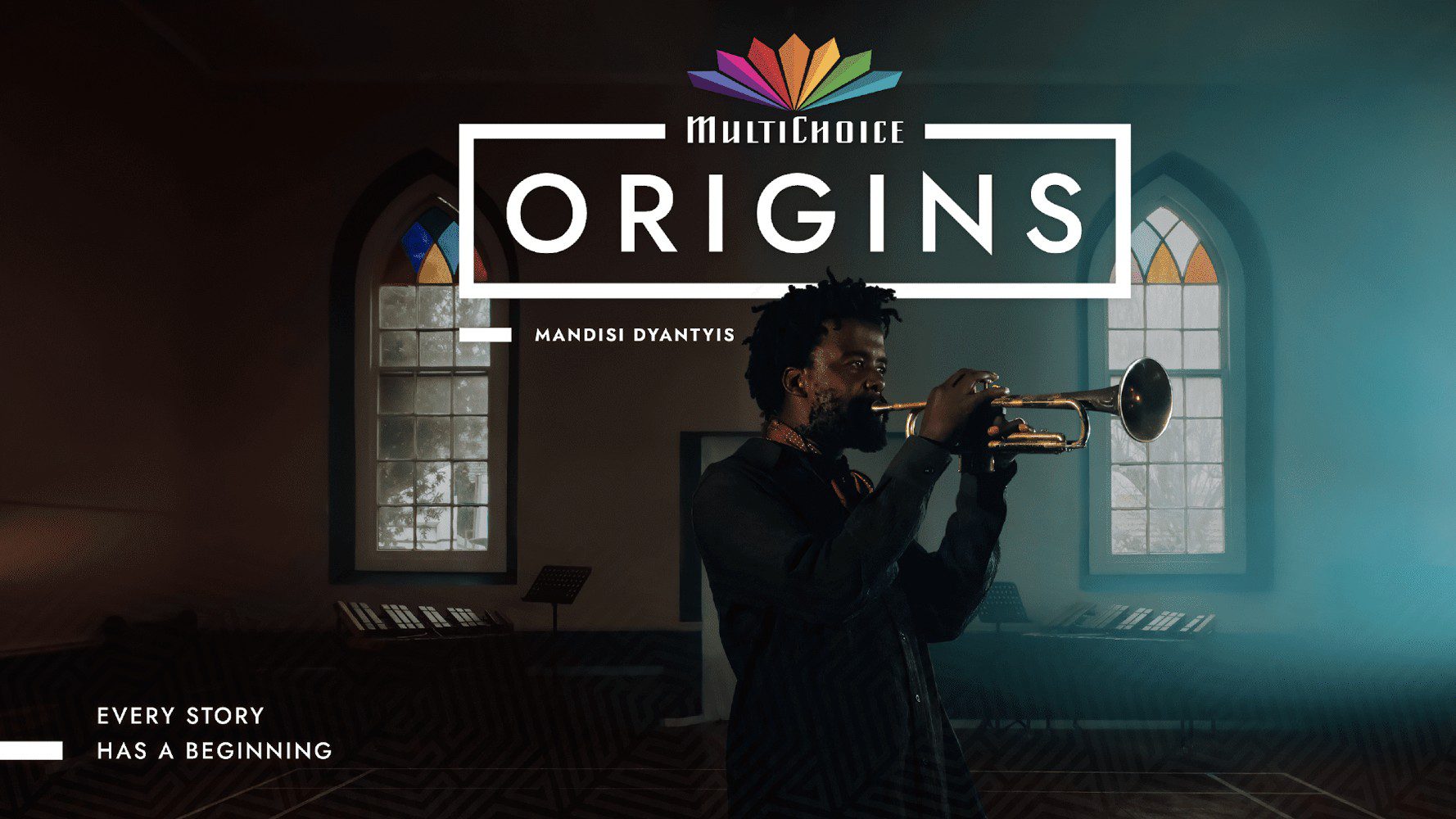One of the five storytellers on the inspiring ORIGINS series by the MultiChoice Group and Showmax, South African musician and instrumentalist Mandisi Dyantyis, teleports us through time with every brazen boom of his trumpet. His music soothes our souls and connects us to those who once were long ago. Then, we hear the story of our humanity through the language of his brass notes. Read on as we speak to Dyantyis about his music journey, growing up in P.E, finding his community and learning through discipline.
You’re a very well-known musician, and those who’ve attended your concerts over the years have gotten a glimpse of your comedian side. In your own words, who is Mandisi?
Mandisi is just a simple person, the third of three children from my mother. I am from Gqeberha, I am from a large family, and I am made by those experiences. Those simple experiences.
What influence did growing up in P.E have on you, that still remains today?
When you grow up, you don’t know that you’ve been influenced; that’s the beauty of this. Then when you are where I am now, especially when you start to create- every creative is constantly tracing through life and finding those moments of simplicity where they understood things clearly. So whether it’s you as a kid playing outside, your mother calling you because it was getting late, or walking to school with your friends. Sharing a meal, fighting about who ate your leftovers, all of those things, you know. I am constantly reminded of those very simple moments that other people might call ‘moments that show that you grew up with nothing,’ but for me, the special moments are the moments that remind me that there’s so much to life. It is about those relationships and the impact people have on you. That is what Gqeberha is for me. It’s the community, the people who are constantly aware of your actions. Whether good or bad, people are aware of what you are doing. You are living your life, and you often have this crowd of people backing you who want you to do well because your success or whatever you do impacts them. They get to be proud that they have a trumpeter in their street, or we’ve got a kid who has earned a scholarship to go and study at a former Model-C school because all of these achievements are our achievements. And so, for me, those are the things I want to think about when I’m thinking about Gqebs.
Building on that, I’ve noted that you have a large support base in Cape Town, particularly at the Rosebank Methodist. We even see it as one of the central locations in your episode of the documentary. Tell me more about this.
I’m part of the community, you know, the community in Rosebank. For almost 20 years, I’ve been part of this community. For 20 years, it has been a home for me. Leaving home and having that community and knowing that you had abantu abadala in the church community who treated you well. I have been part of that community every single day since then. I’m not a visitor at my church nor a visitor in that community; I’m part of the community even now. That is what authentic community is; I am their own, and they claim me. I love that because I would do the same. I do the same for other people and other people’s wins, even those who are not in the public eye as I am.
What is your approach to collaboration?
For me, it’s simple: collaboration is simple. Honestly, I work with people I would share a meal with. I like to work with people that I can have a decent conversation with about anything. Because for me, it’s in the energy. As someone who collaborates with musicians and people all the time, I gravitate towards stories and try to listen to other people’s stories. Because when you can hear stories from other, where they come from, and what drives them, you can easily tap into things they don’t know because you use those experiences as catalysts of whatever it is you’re trying to create.


